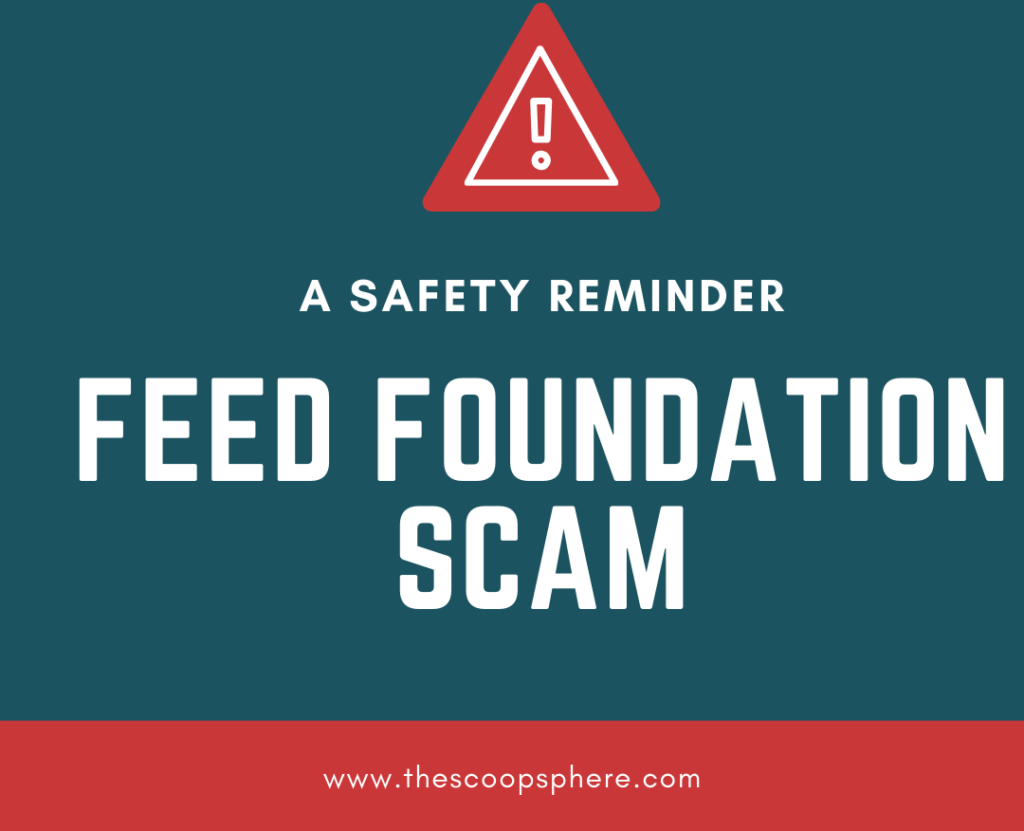
In the age of ever-advancing technology, the unfortunate rise of telemarketing scams has also seen a sharp increase. Among the latest to hit the headlines is the nefarious “Feed Foundation Scam,” which has tricked countless individuals into parting with their hard-earned money under the guise of a charitable cause. Today, we dive deep into the mechanics of this scam, how it plays out, and offer effective strategies to prevent falling victim to such robocall scams.
What is the Feed Foundation Scam?
The Feed Foundation scam involves robocalls that exploit the goodwill of people by asking for donations to feed starving children around the world. The scammers use a fabricated charity name, “Feed Foundation,” and play upon the emotional strings of potential donors. The twist in the tale? The Feed Foundation does not exist at all. It’s a phantom entity created to siphon money from unsuspecting victims, not to channel aid to any cause.

How Does the Feed Foundation Robocall Scam Unfold?
Here’s a step-by-step breakdown of how this Feed Foundation Scam typically unravels:
- Unexpected Call: Victims receive calls from unknown numbers. Upon answering, a pre-recorded message from a supposed representative of the Feed Foundation plays, appealing to the listener’s humanitarian spirit.
- Emotional Appeal: The message often describes dire situations that require immediate financial support, compelling the listener to act swiftly to help alleviate such suffering.
- Request for Financial Details: If the person agrees to donate by pressing a prompted key, they’re transferred to a live scammer who persuades them to disclose their credit card details for a donation.
- Financial Exploitation: Once the scammers obtain credit card information, they don’t just process the supposed one-time donation but go on to make unauthorized transactions, often draining the victim’s bank account.
Real Victims of the Feed Foundation Scam
- The Cautious Grandmother: Edna G., an 82-year-old who believed she was aiding a noble cause, was bilked out of over $5,000 through repeated unauthorized charges.
- The Generous Veteran: Hank J., a 68-year-old veteran, lost his life savings amounting to $37,000 after being manipulated into paying exorbitant sums for non-existent premium memberships and urgent aid requests.
Preventing Feed Foundation Robocall Scams
Protection against such scams requires vigilance and proactive measures:
- Immediate Disconnection: Hang up as soon as you realize it’s a robocall asking for donations.
- Do Not Disclose Personal Information: Never give out your payment information over the phone to an unsolicited caller.
- Utilize Call Blocking Tools: Employ apps or services that can help block known scam numbers.
- Report the Scammers: Inform the FTC or other relevant authorities about the scam calls to help them take action.
- Educate Your Community: Share this information with friends and family, especially the elderly who are more susceptible to such scams.
Conclusion
The Feed Foundation scam is a stark reminder of the dark side of our digital world, where scammers use sophisticated tactics to exploit the generosity of the public. Awareness and caution are potent weapons against such deceit. Always verify the legitimacy of a charity through official channels before donating, and remember, legitimate organizations do not solicit donations via unsolicited calls.
By spreading the word and staying informed, we can protect ourselves and our loved ones from falling prey to the Feed Foundation scam and similar fraudulent schemes.
Sources scamalot.com Reddit
Read About Multiple User’s LASTPASS MASTERCARD PASSWORD LEAK to Ultra-Convincing Scam
I am getting lots of spam calls connected to Feed Foundation. I think it is Trump voters who dislike my social media posts. 713-405-7229 is the latest. Michael McAlpin
asperiores voluptatem magnam velit quia ratione fugiat numquam aut dicta cupiditate et et. quia debitis aut cupiditate ex iure fugit praesentium porro. similique facilis sint nihil blanditiis quia vel